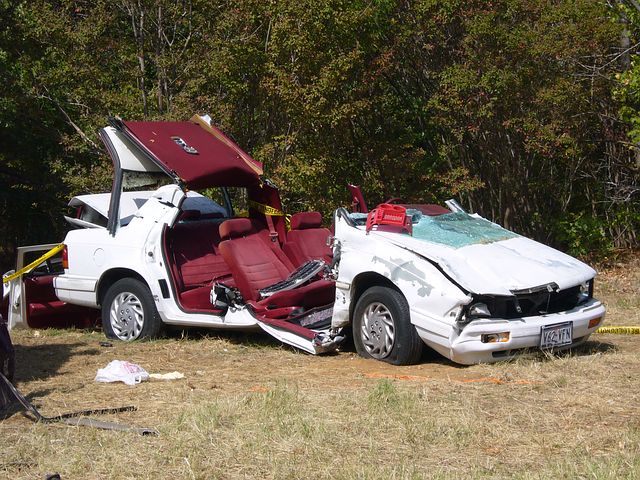Why are there more car-crash media interviews than ever?
Five trends point to even more car-crash interviews in future
By Robert Taylor on the May 19th, 2017

Politicians are famous for dodging journalists’ questions, and it’s happening all too often. Even President Obama executed an outrageous, if skilful, dodge in his recent BBC interview with Huw Edwards, when asked whether Britain really would be at the back of the queue in post-Brexit trade negotiations.
Obama got away with it, because Edwards let him off the hook. But you can never guarantee a journalist will do that. Neither a Paxman nor a Humphries would have been as overawed by the President, as Edwards obviously was.
And even if the journalist lets you dodge, the audience will certainly notice. And what will they think? I can remember no occasion, ever, where a dodged question makes the dodgee look good. Often it makes them appear insincere, arrogant and slippery. It’s also profoundly irritating.
The most famous case dates from 1997 when Michael Howard avoided the same Jeremy Paxman question an incredible 14 times. Two decades on, Howard is still living it down.
You might have thought that politicians would have learned from Howard’s experience. But no. Take Chloe Smith, a junior minister in the last government. Her Newsnight interview with Paxman about the government’s decision to abandon a tax increase on fuel was like a slow-motion car crash. And it all started to go wrong with her needless avoidance, six times no less, of the very first question: “When were you told of this change of plan?”. Would it have been so damaging to her if she’d simply answered?
Matthew Parris has made an admirable attempt to defend the dodgers, saying that politicians who “hedge, bluster, flannel and obfuscate” are, paradoxically, the honest ones – they are merely trying to avoid saying something untrue while sticking to their party line.
Well, of course, politicians shouldn’t lie. That’s the worst thing they could do. But, knowing what the audience’s reaction is likely to be, nor should they avoid pertinent questions.
There is also an ethical issue here. Journalists ask questions for a reason: their audience wants to know the answer. If you dodge questions you are, surely, concealing the truth from people you claim to care about.
So should interviewees always answer the question? No. Sometimes you get questions that you should not answer for legitimate reasons. For example, the journalist might have asked for confidential information, or there might be security or privacy considerations. But in these cases, interviewees should address the question simply by telling the journalist why they can’t answer it.
There is all the difference in the world between addressing a question and avoiding it.
No doubt there are a few questions where answering truthfully can damage the interviewee even more than dodging. But not many. And if you are ever tempted to dodge, ask yourself this: are you sure that portraying yourself to be untrustworthy and slippery (the danger of dodging) is less damaging to your reputation than the alternative?
In nearly all cases, answering the question, or at least addressing it, will serve you better.
…………….
This article first appeared in PR Week
Follow me on Twitter
To find out how I can help your business please contact me
May 27th, 2016

Five trends point to even more car-crash interviews in future
By Robert Taylor on the May 19th, 2017

Goodness, to hear some people talk, you’d have thought that the…
By Robert Taylor on the November 21st, 2016